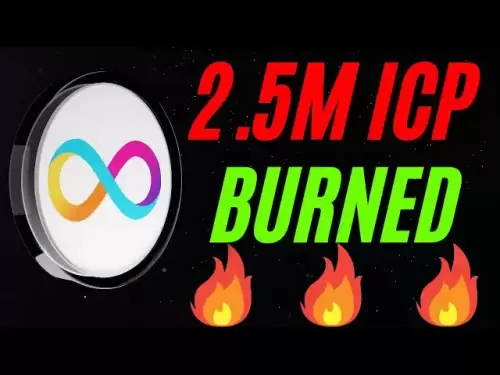-
 Bitcoin
Bitcoin $106,754.6083
1.33% -
 Ethereum
Ethereum $2,625.8249
3.80% -
 Tether USDt
Tether USDt $1.0001
-0.03% -
 XRP
XRP $2.1891
1.67% -
 BNB
BNB $654.5220
0.66% -
 Solana
Solana $156.9428
7.28% -
 USDC
USDC $0.9998
0.00% -
 Dogecoin
Dogecoin $0.1780
1.14% -
 TRON
TRON $0.2706
-0.16% -
 Cardano
Cardano $0.6470
2.77% -
 Hyperliquid
Hyperliquid $44.6467
10.24% -
 Sui
Sui $3.1128
3.86% -
 Bitcoin Cash
Bitcoin Cash $455.7646
3.00% -
 Chainlink
Chainlink $13.6858
4.08% -
 UNUS SED LEO
UNUS SED LEO $9.2682
0.21% -
 Avalanche
Avalanche $19.7433
3.79% -
 Stellar
Stellar $0.2616
1.64% -
 Toncoin
Toncoin $3.0222
2.19% -
 Shiba Inu
Shiba Inu $0.0...01220
1.49% -
 Hedera
Hedera $0.1580
2.75% -
 Litecoin
Litecoin $87.4964
2.29% -
 Polkadot
Polkadot $3.8958
3.05% -
 Ethena USDe
Ethena USDe $1.0000
-0.04% -
 Monero
Monero $317.2263
0.26% -
 Bitget Token
Bitget Token $4.5985
1.68% -
 Dai
Dai $0.9999
0.00% -
 Pepe
Pepe $0.0...01140
2.44% -
 Uniswap
Uniswap $7.6065
5.29% -
 Pi
Pi $0.6042
-2.00% -
 Aave
Aave $289.6343
6.02%
Is it necessary to clear the position when the large-volume big Yin line falls below the 10-day line?
A large-volume big Yin line below the 10-day moving average signals strong selling pressure, prompting traders to consider exiting positions to manage risk and avoid further losses.
Jun 15, 2025 at 11:14 pm
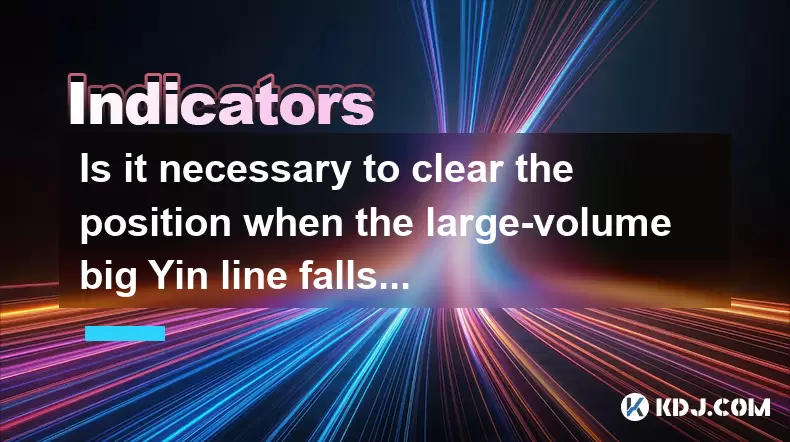
Understanding the 10-Day Moving Average in Cryptocurrency Trading
In cryptocurrency trading, the 10-day moving average is a commonly used technical indicator that helps traders identify short-term trends. It calculates the average price of an asset over the last ten days and smooths out price volatility. When prices fall below this line, especially with a large-volume big Yin line, it often signals strong selling pressure.
Traders should understand that the 10-day moving average acts as a dynamic support or resistance level. If the price consistently stays above it, it suggests a bullish trend. Conversely, when the price breaks below this level, particularly on high volume, it may indicate a reversal or continuation of a downtrend.
What Is a Large-Volume Big Yin Line?
A large-volume big Yin line refers to a candlestick pattern where the price closes significantly lower than its opening, accompanied by unusually high trading volume. This type of candlestick typically reflects panic selling, profit-taking, or institutional dumping. In crypto markets, which are highly volatile and sentiment-driven, such patterns can be powerful indicators of market psychology.
When a large-volume big Yin line occurs below the 10-day moving average, it reinforces bearish momentum. Traders often interpret this as a sign that sellers have taken control and that further downside movement may follow. However, context matters—this signal should not be viewed in isolation.
Why Do Traders Consider Closing Positions Under These Conditions?
Many traders opt to clear their positions when they observe a large-volume big Yin line falling below the 10-day moving average due to several reasons:
- Loss of Support: The 10-day line no longer serves as support once broken, suggesting the trend may continue downward.
- High Volume Confirmation: High volume accompanying the drop confirms strong selling interest, increasing the likelihood of further declines.
- Risk Management: Exiting early helps limit potential losses if the price continues to fall.
Some traders use stop-loss orders placed just below the 10-day moving average to automate this process. Others manually monitor the situation and decide based on additional indicators or chart patterns.
How to Analyze the Context Before Making a Decision
Before deciding whether to clear your position, consider the following factors:
- Market Trend: Is the overall trend bullish or bearish? A break below the 10-day line in a strong uptrend might be a temporary pullback rather than a reversal.
- Volume Analysis: Was the volume truly significant compared to the average volume over the past few weeks?
- Other Indicators: Check for confirmation from other tools like RSI, MACD, or Fibonacci retracement levels.
- News Events: Sometimes sharp drops are caused by sudden news events or regulatory changes. Understanding the cause behind the move is crucial.
By evaluating these aspects, traders can avoid knee-jerk reactions and make more informed decisions about whether to exit or hold their positions.
Step-by-Step Guide to Evaluating Your Position
If you're facing a large-volume big Yin line below the 10-day moving average and considering exiting, here’s a detailed step-by-step guide:
- Review the Chart: Zoom out to see the broader trend. Is the asset in a clear uptrend, downtrend, or sideways consolidation?
- Check Historical Behavior: Look at how the price reacted after similar candlesticks in the past.
- Analyze Volume: Compare the current volume with the previous 20 sessions to determine if it's abnormally high.
- Assess Risk-Reward Ratio: Calculate how much you stand to lose versus how much you could gain if the price recovers.
- Use Multiple Timeframes: Confirm the signal on higher timeframes (e.g., 4-hour or daily charts) to ensure consistency.
- Set Clear Exit Criteria: Decide whether you’ll exit entirely, partially hedge, or wait for a retest of the 10-day line.
This structured approach ensures that emotional bias doesn't cloud judgment and that decisions are made systematically.
Frequently Asked Questions
Q: Can a large-volume big Yin line ever be a buying opportunity?
Yes, in some cases, especially after a prolonged downtrend, a sharp sell-off with high volume can mark a bottom or capitulation point. Skilled traders look for signs of reversal such as engulfing patterns or oversold conditions on RSI before considering a long entry.
Q: What if the price quickly rebounds above the 10-day line after the big Yin line?
That could suggest that the breakdown was a false signal. Monitoring the next few candles and watching for a strong reversal candle or increased buying volume is key to reassessing the situation.
Q: Should I always close my position if the price drops below the 10-day moving average?
No, not necessarily. While it’s a useful tool, the 10-day line should be used in conjunction with other indicators and market context. Blindly exiting every time can lead to missed opportunities during healthy corrections within a larger uptrend.
Q: How does the behavior of Bitcoin affect altcoins in this scenario?
Bitcoin often sets the tone for the broader market. If Bitcoin shows a large Yin line below its 10-day line, altcoins may follow. However, some altcoins may behave differently based on their individual fundamentals or news. Always analyze each asset independently while keeping macro trends in mind.
Disclaimer:info@kdj.com
The information provided is not trading advice. kdj.com does not assume any responsibility for any investments made based on the information provided in this article. Cryptocurrencies are highly volatile and it is highly recommended that you invest with caution after thorough research!
If you believe that the content used on this website infringes your copyright, please contact us immediately (info@kdj.com) and we will delete it promptly.
- 2025-W Uncirculated American Gold Eagle and Dr. Vera Rubin Quarter Mark New Products
- 2025-06-13 06:25:13
- Ruvi AI (RVU) Leverages Blockchain and Artificial Intelligence to Disrupt Marketing, Entertainment, and Finance
- 2025-06-13 07:05:12
- H100 Group AB Raises 101 Million SEK (Approximately $10.6 Million) to Bolster Bitcoin Reserves
- 2025-06-13 06:25:13
- Galaxy Digital CEO Mike Novogratz Says Bitcoin Will Replace Gold and Go to $1,000,000
- 2025-06-13 06:45:13
- Trust Wallet Token (TWT) Price Drops 5.7% as RWA Integration Plans Ignite Excitement
- 2025-06-13 06:45:13
- Ethereum (ETH) Is in the Second Phase of a Three-Stage Market Cycle
- 2025-06-13 07:25:13
Related knowledge
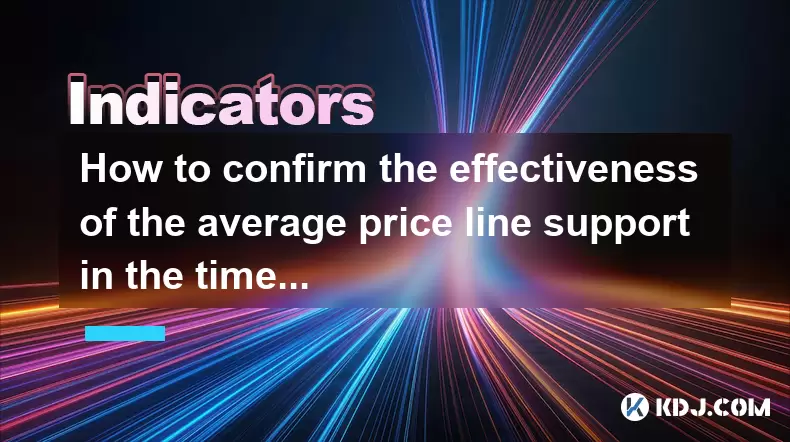
How to confirm the effectiveness of the average price line support in the time-sharing chart?
Jun 17,2025 at 12:56am
Understanding the Time-Sharing Chart and Its RelevanceIn cryptocurrency trading, time-sharing charts play a crucial role in analyzing short-term price movements. These charts typically display price fluctuations over a specific period, often ranging from minutes to hours. Traders rely on them to make quick decisions based on real-time data. The average ...
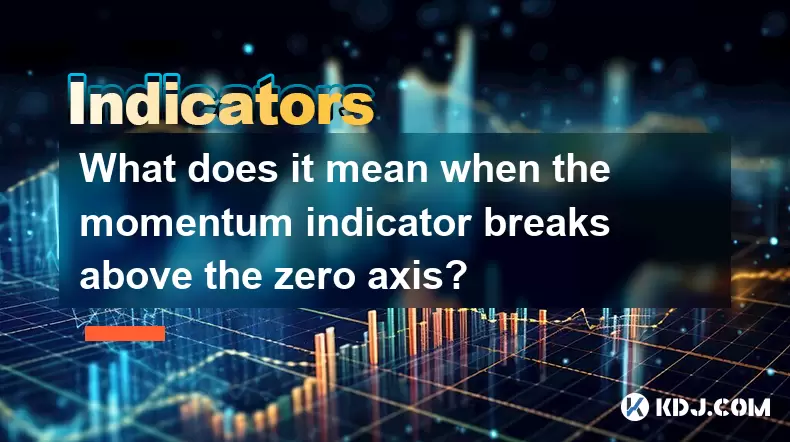
What does it mean when the momentum indicator breaks above the zero axis?
Jun 17,2025 at 12:43am
Understanding the Momentum IndicatorThe momentum indicator is a technical analysis tool used to measure the speed or velocity of price movements in cryptocurrency markets. It helps traders identify potential trend reversals, overbought or oversold conditions, and confirms existing trends. The indicator typically oscillates around a zero line, with value...
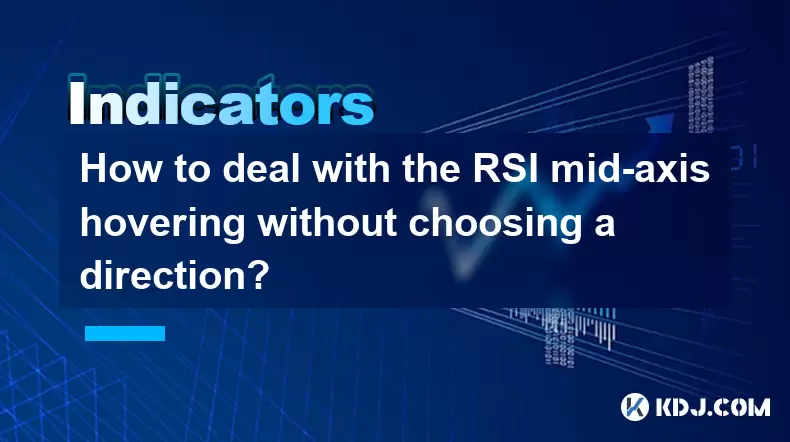
How to deal with the RSI mid-axis hovering without choosing a direction?
Jun 17,2025 at 02:02am
Understanding RSI Mid-Axis Hovering in Cryptocurrency TradingThe Relative Strength Index (RSI) is a popular momentum oscillator used by traders to assess whether an asset is overbought or oversold. In cryptocurrency markets, it's common for the RSI to hover around its mid-axis, typically at the 50 level, without showing a clear upward or downward trend....
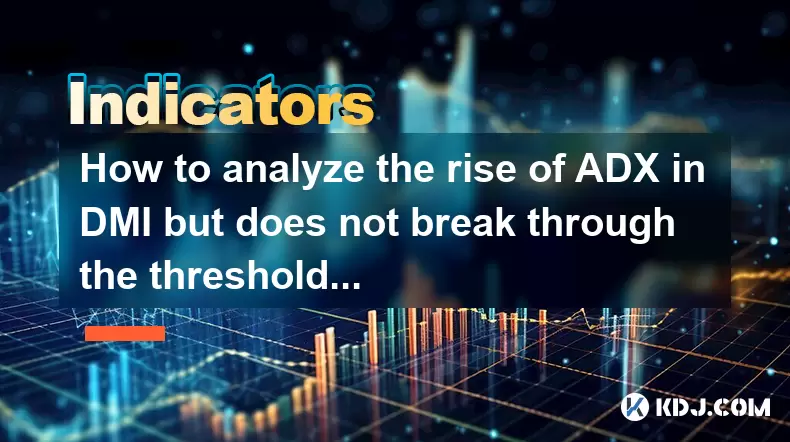
How to analyze the rise of ADX in DMI but does not break through the threshold?
Jun 16,2025 at 11:49pm
Understanding ADX and DMI in Cryptocurrency TradingIn cryptocurrency trading, ADX (Average Directional Index) is a technical indicator used to measure the strength of a trend. It works in conjunction with the DMI (Directional Movement Indicator), which includes two components: +DI (Positive Directional Indicator) and -DI (Negative Directional Indicator)...
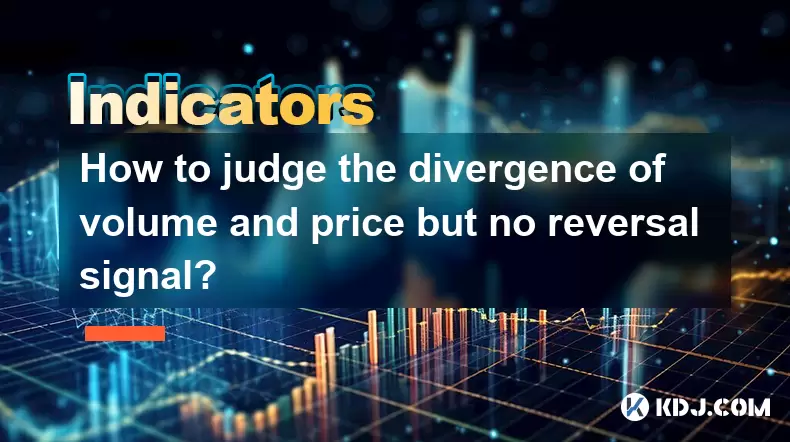
How to judge the divergence of volume and price but no reversal signal?
Jun 17,2025 at 12:28am
Understanding Volume and Price DivergenceIn the world of cryptocurrency trading, volume and price are two key indicators that traders monitor closely. Divergence occurs when these two metrics move in opposite directions. For example, if the price of a cryptocurrency is rising but its volume is declining, this could signal weakening momentum. However, it...
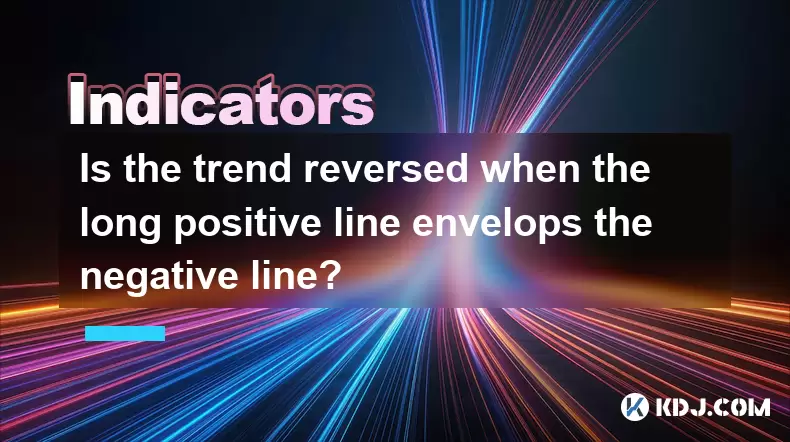
Is the trend reversed when the long positive line envelops the negative line?
Jun 17,2025 at 03:28am
Understanding the Envelope Pattern in Candlestick ChartsIn candlestick charting, one of the most widely recognized reversal patterns is the 'enveloping pattern.' This pattern typically appears at the end of a trend and signals a potential reversal. When a long positive (bullish) candle completely engulfs the previous negative (bearish) candle, it can in...

How to confirm the effectiveness of the average price line support in the time-sharing chart?
Jun 17,2025 at 12:56am
Understanding the Time-Sharing Chart and Its RelevanceIn cryptocurrency trading, time-sharing charts play a crucial role in analyzing short-term price movements. These charts typically display price fluctuations over a specific period, often ranging from minutes to hours. Traders rely on them to make quick decisions based on real-time data. The average ...

What does it mean when the momentum indicator breaks above the zero axis?
Jun 17,2025 at 12:43am
Understanding the Momentum IndicatorThe momentum indicator is a technical analysis tool used to measure the speed or velocity of price movements in cryptocurrency markets. It helps traders identify potential trend reversals, overbought or oversold conditions, and confirms existing trends. The indicator typically oscillates around a zero line, with value...

How to deal with the RSI mid-axis hovering without choosing a direction?
Jun 17,2025 at 02:02am
Understanding RSI Mid-Axis Hovering in Cryptocurrency TradingThe Relative Strength Index (RSI) is a popular momentum oscillator used by traders to assess whether an asset is overbought or oversold. In cryptocurrency markets, it's common for the RSI to hover around its mid-axis, typically at the 50 level, without showing a clear upward or downward trend....

How to analyze the rise of ADX in DMI but does not break through the threshold?
Jun 16,2025 at 11:49pm
Understanding ADX and DMI in Cryptocurrency TradingIn cryptocurrency trading, ADX (Average Directional Index) is a technical indicator used to measure the strength of a trend. It works in conjunction with the DMI (Directional Movement Indicator), which includes two components: +DI (Positive Directional Indicator) and -DI (Negative Directional Indicator)...

How to judge the divergence of volume and price but no reversal signal?
Jun 17,2025 at 12:28am
Understanding Volume and Price DivergenceIn the world of cryptocurrency trading, volume and price are two key indicators that traders monitor closely. Divergence occurs when these two metrics move in opposite directions. For example, if the price of a cryptocurrency is rising but its volume is declining, this could signal weakening momentum. However, it...

Is the trend reversed when the long positive line envelops the negative line?
Jun 17,2025 at 03:28am
Understanding the Envelope Pattern in Candlestick ChartsIn candlestick charting, one of the most widely recognized reversal patterns is the 'enveloping pattern.' This pattern typically appears at the end of a trend and signals a potential reversal. When a long positive (bullish) candle completely engulfs the previous negative (bearish) candle, it can in...
See all articles























